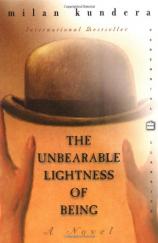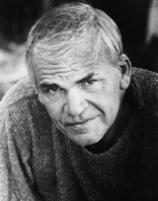Reading Group Guide
Discussion Questions
The Unbearable Lightness of Being

1. What kinds of being carry the attribute of lightness? How is the "lightness of being" of the novel's title presented? In what ways is it "unbearable"? What is the difference between "the sweet lightness of being" that Tomas enjoys in Zurich, after Tereza's return to Prague, and "the unbearable lightness of being"?
2. How does Nietzsche's myth of eternal return, with which Kundera opens his book, function in the novel? What does Kundera mean when he refers to "the profound moral perversity of a world that rests essentially on the nonexistence of return"? How does what he calls the unbearable burden of eternal return contrast with the "splendid lightness" of our daily lives?
3. How would you describe the three central relationships of the novel--Tereza and Tomas, Tomas and Sabina, Sabina and Franz? How do they embody Kundera's primary concerns and themes?
4. In what ways does Kundera explore what he calls "the irreconcilable duality of body and soul, that fundamental human experience." In what ways does he show this duality to be fundamental?
5. Both Tereza and Tomas repeatedly think of the series of fortuitous events that brought them together. What is the rule of fortuity, chance, and coincidence in their lives and the lives of others? What does Kundera mean when he writes, "Chance and chance alone has a message for us"?
6. In what ways may Sabina's description of her dual-level paintings--"On the surface, an intelligible lie; underneath, the unintelligible truth"--apply to every aspect of the characters' lives and relationships?
7. What meanings and importance do each of the main characters ascribe to fidelity and betrayal? In what instances, for each character, do fidelity and betrayal have either positive or negative qualities?
8. Kundera insists that "the criminal regimes were made not by criminals but by enthusiasts convinced they had discovered the only road to paradise." What visions or versions of paradise are presented in the novel? By whom? How does each vision/version of paradise affect the lives of its enthusiasts and the lives of others?
The Unbearable Lightness of Being
- Publication Date: April 7, 1999
- Paperback: 320 pages
- Publisher: Harper Perennial Modern Classics
- ISBN-10: 0060932139
- ISBN-13: 9780060932138







